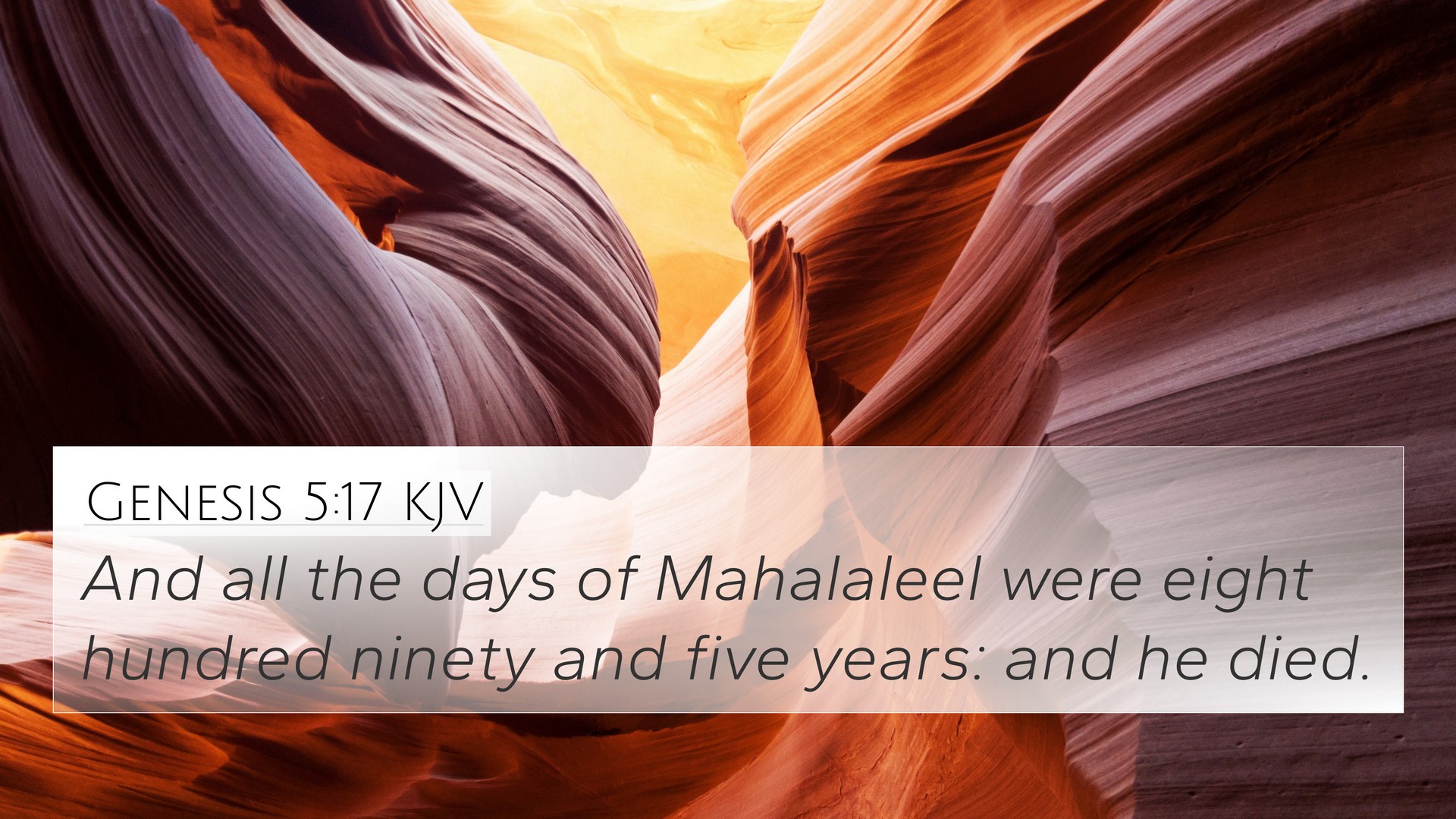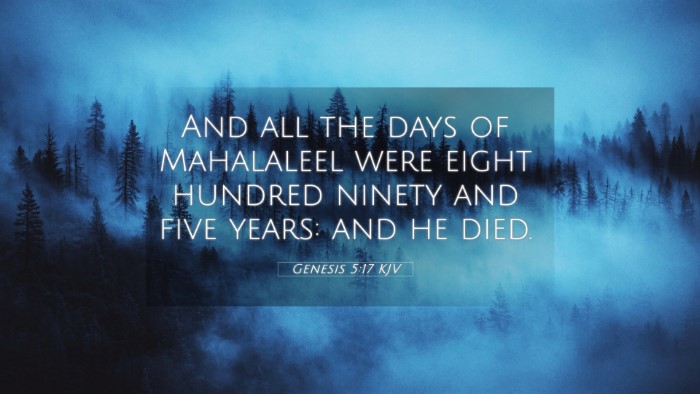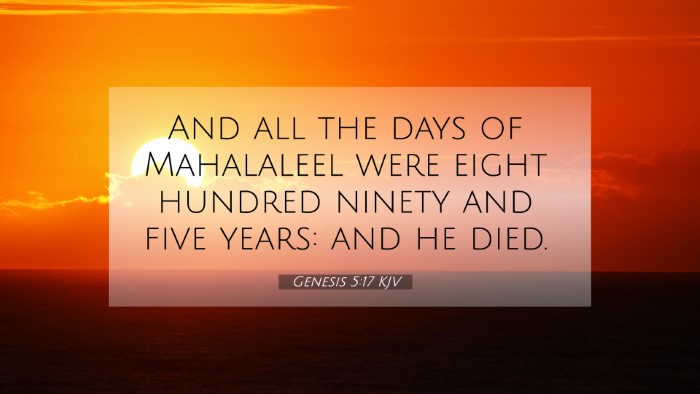Understanding Genesis 5:17
Genesis 5:17 states, "So all the days of Methuselah were nine hundred sixty and nine years, and he died." This verse serves as a succinct summary of the life of Methuselah, who is known for his exceptionally long lifespan. Through the lens of various public domain commentaries, we can derive insights that not only explain Methuselah’s age but also offer broader theological and narrative contexts.
Meaning and Implications
This verse stands out prominently in the genealogical record within Genesis. Matthew Henry emphasizes the brevity of the phrase, yet it encapsulates significant truths about human mortality and divine judgment. Methuselah’s longevity has been a symbol, often interpreted through a theological lens as a sign of God's grace before judgment, presenting the mercy extended to humanity before the flood.
Albert Barnes elaborates on the chronology of Methuselah's life, linking it to significant events in biblical history. His lifespan coincides with the period leading up to the Great Flood, suggesting that his life was a poignant reminder of the mercy of God. The very name 'Methuselah' is believed by some scholars to mean "his death shall bring," foreshadowing the impending judgment during Noah's time.
Adam Clarke provides further insight by contextualizing Methuselah's life compared to others in the genealogical list. Methuselah stands out not just for his length of days, but as part of a line that emphasizes the human condition and the divine plan for redemption. His long life can be viewed as an invitation to repentance for those around him, highlighting the theme of God's patience.
Bible Verse Cross-References
- Hebrews 11:5 - Highlights the faith of Enoch, Methuselah's father, and his heavenly reward.
- Genesis 6:3 - Talks about God's spirit striving with humanity, emphasizing the impending judgment.
- Matthew 24:37-39 - Compares the days of Noah to the coming of the Son of Man.
- Ecclesiastes 3:17 - Discusses God's judgment and the timing of all acts under heaven.
- 1 Peter 3:20 - Mentions the patience of God during the days of Noah, relating to the time Methuselah lived.
- Luke 3:37 - Records Methuselah's name in Jesus' genealogy, showcasing his importance.
- Jude 1:14-15 - References Enoch, representing a prophetic warning to those who disregard God's message.
- Romans 2:4 - Speaks about the kindness of God that leads to repentance, echoing themes present during Methuselah's days.
- Genesis 4:26 - Connects to the lineage from Adam through Seth, emphasizing the development of godly generations.
- Isaiah 65:20 - Contrasts long life with the judgment to come, linking Methuselah's life with themes of mortality.
Thematic Bible Verse Connections
The passage invites deeper reflections on life, death, and God's patience. Themes of divine timing and human agency are prevalent throughout scripture, from the antediluvian era of Methuselah to contemporary reflections on the significance of life spans and divine purpose.
Cross-Referencing Biblical Texts
To illustrate the interconnectedness of biblical narratives, understanding Methuselah's life through cross-references can enrich personal study and sermon preparations. The links between Methuselah’s life and significant events in biblical history showcase how genealogies serve not just as family trees but as theological journeys highlighting faith, judgment, and hope.
By employing tools for Bible cross-referencing, such as concordances and cross-reference guides, students of the Bible can uncover the intricate relationships between verses that address themes of grace, judgment and the human experience. For instance, examining parallel verses regarding Enoch and Noah provides perspectives on how individual lives contribute to God's overarching narrative.
Conclusion
In summary, Genesis 5:17 serves as a crucial verse within the context of biblical theology and genealogical importance. Methuselah, as a figure, stirs significant inquiries about mortality, divine patience, and the prophetic implications of his name. His narrative encourages an ongoing dialogue throughout the scripture, inviting deeper engagement through comparative Bible verse analysis, enriching our understanding of God's character and the human condition.
As you continue to explore the rich tapestry of inter-Biblical dialogue, consider how each verse illuminates the others, demonstrating that the great themes of scripture are inherently interconnected, inviting exploration and reflection through careful study.


